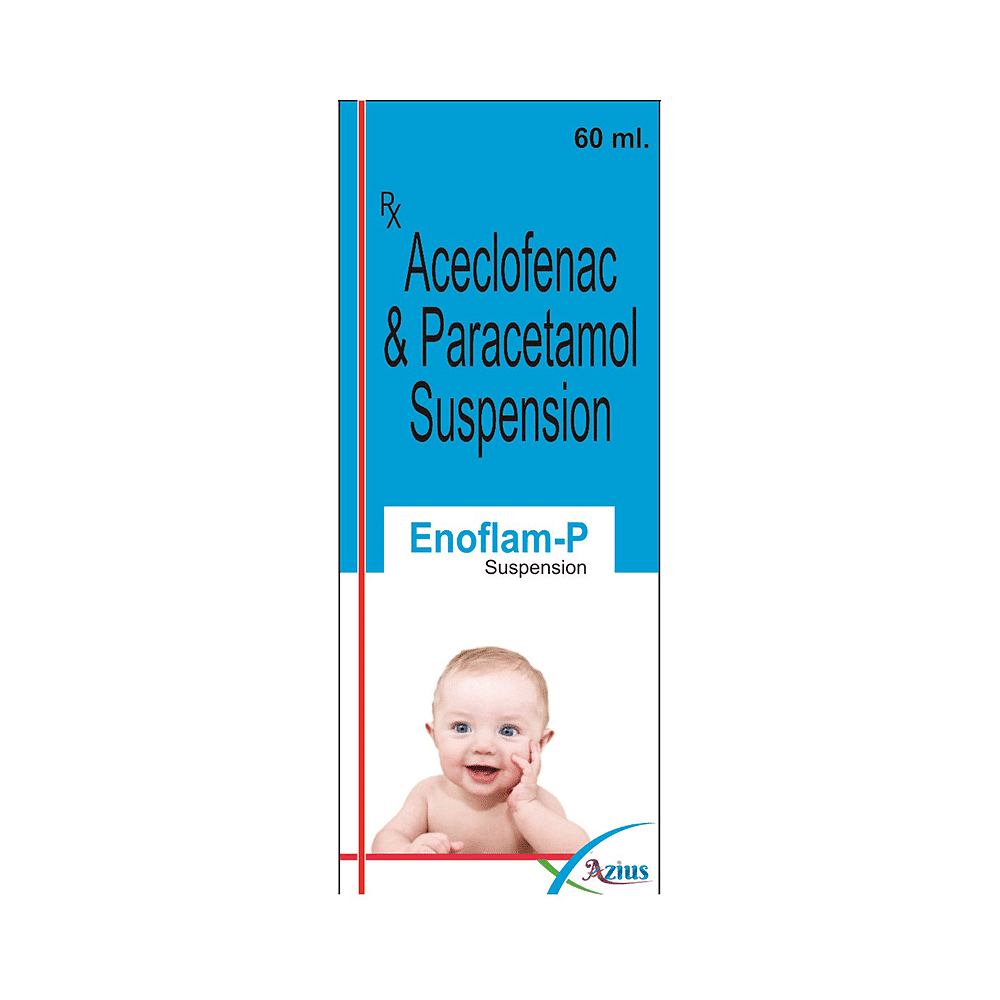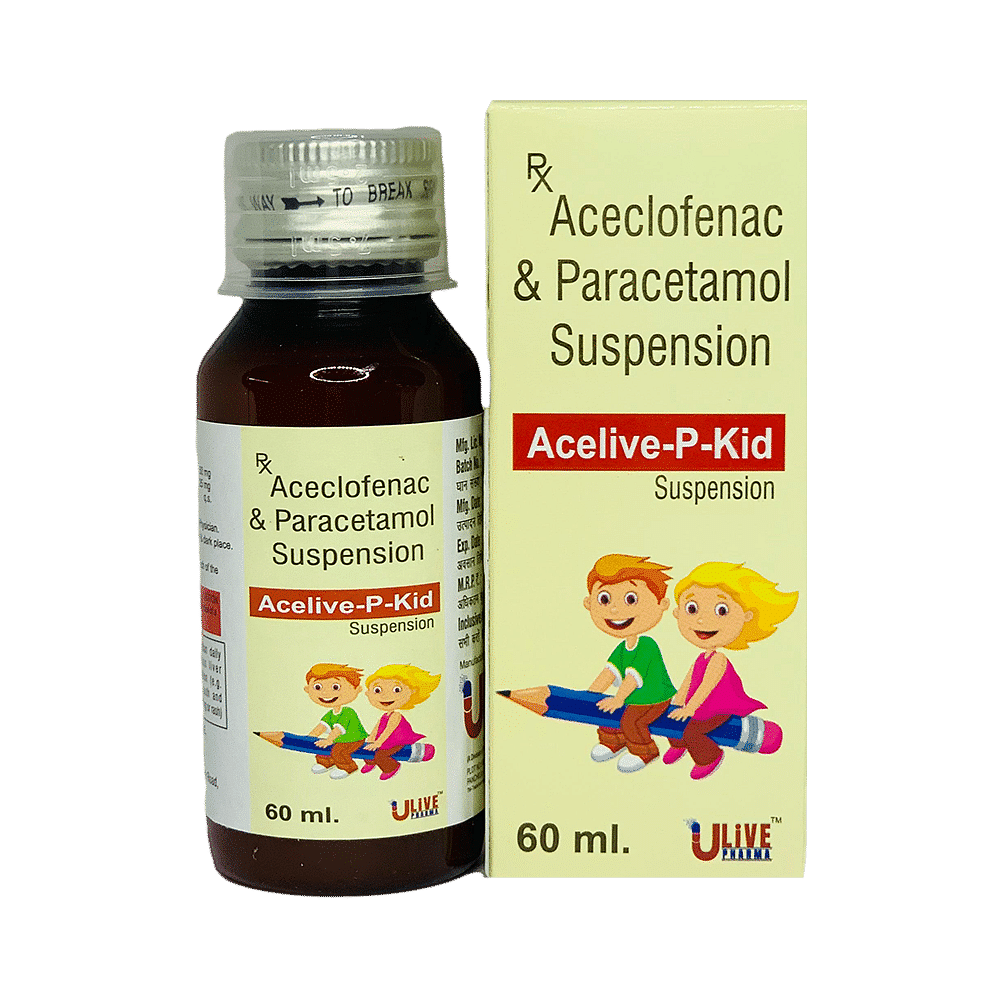
Movogesic P Oral Suspension
Manufacturer
Cogniwell Pharmaceuticals Private Limited
Salt Composition
Aceclofenac (50mg) + Paracetamol (125mg)
Key Information
Short Description
Movogesic P Oral Suspension helps lower body temperature (fever) and reduce pain and inflammation (redness and swelling) both in infants and children.
Dosage Form
Oral Suspension
Introduction
Movogesic P Oral Suspension is a medication that helps to lower body temperature (fever) and reduce pain and inflammation (redness and swelling) in infants and children. It is available in the form of an oral suspension.
Directions for Use
Give this medicine after food to avoid abdominal discomfort in your child. Maintain a log of your child's temperature. If you do not see any improvement, contact your child's doctor for advice.
How it works
Movogesic P Oral Suspension comprises two active ingredients: Aceclofenac and Paracetamol. These medicines work by blocking the action of chemical messengers responsible for pain, fever, and inflammation (redness and swelling).
Quick Tips
Give plenty of fluids to your child to ensure proper body hydration (water-levels) Give your child a balanced diet Encourage your child to have optimum sleep since sick children get tired soon and getting plenty of rest helps them recover faster. Stop the medicine and consult your child's doctor in case your child exhibits allergic rash or stomach pain soon after taking this medicine.
Related Medicines

Acecus P Oral Suspension

Acelomol Oral Suspension

Acefile P Oral Suspension Pineapple

Acecliff P Oral Suspension

Ciclogen-P Oral Suspension

Enoflam-P Oral Suspension

Acelive-P-Kid Suspension

Acepa P Oral Suspension

Feamp P Oral Suspension

Grinac-P Oral Suspension
Frequently asked questions
Can I increase or decrease the dose of Movogesic P Oral Suspension for my child based on the severity of their illness?
No. It is not recommended to alter the dosage without consulting a doctor. While increasing the dose without proper judgment may lead to toxicity, decreasing it may cause recurrence of symptoms. Therefore, if you need to change the dosage, please speak to your child's doctor for guidance.
How much Movogesic P Oral Suspension should I give my child?
The doctor will prescribe the appropriate dose based on your child’s condition and body weight. Adhere to the prescribed dosing schedule as this is the safest and most effective way to ensure complete recovery.
How should Movogesic P Oral Suspension be stored?
Movogesic P Oral Suspension should be stored at room temperature in a dry location away from direct heat or sunlight. All medicines should be kept out of reach and sight of children to prevent accidental ingestion.
Can all children be given the same dose of Movogesic P Oral Suspension?
No. Movogesic P Oral Suspension cannot be given to everyone in the same dose, as it is determined by age, weight, and other factors based on your child’s individual health condition. Never administer any dosage without consulting a doctor. Follow your doctor's instructions carefully for optimal results.
When will my child feel better?
Recovery time varies depending on the severity of the infection. Depending on the severity, you may need to give Movogesic P Oral Suspension for several days or weeks. Adherence to prescribed dosing and frequency by your doctor will help reduce pain or fever and improve your child’s condition. If they continue to feel unwell after completing the full prescribed course, consult a doctor immediately.
Are there any serious side effects of this medicine for my child?
While Movogesic P Oral Suspension is generally well-tolerated by children, if you notice any severe or persistent symptoms like frequent vomiting, swelling, decreased urination frequency, or an allergic reaction, contact your doctor immediately.
Are there any specific contraindications associated with the use of Movogesic P Oral Suspension?
Movogesic P Oral Suspension may be harmful for patients with known allergies to its ingredients. Avoid using this medicine if you or your child have a history of reactions to other painkillers (NSAIDs). Additionally, it should be avoided in people with active stomach ulcers, a history of heart failure, high blood pressure, or liver or kidney disease.


